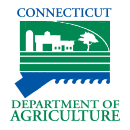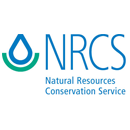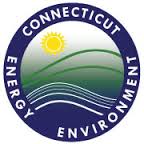
Connecticut’s Farmland Preservation Program
Connecticut’s primary mechanism for preserving farmland is the state’s Farmland Preservation Program. This voluntary program was created in 1978 to allow the state to purchase agricultural easements on privately held farmland, permanently protecting the land from development and ensuring its use for agriculture in perpetuity. The properties remain in private ownership and on the local tax rolls, with a permanent conservation restriction placed on the property. As of December 2015, the program had permanently protected 315 farms and more than 41,500 acres of farmland in Connecticut.
The Department of Agriculture also administers the Community Farms Preservation Program, aimed at protecting small farms of local economic importance that may not qualify for the traditional Farmland Preservation Program. The program encourages participation of not only traditional rural towns, but also urban and suburban communities.
To request more information about these programs, contact Cameron Weimar at the CT Department of Agriculture at cam.weimar@ct.gov or 860-715-2552.

Federal Farmland Protection Program
The 2014 Farm Bill consolidated the Federal Farm and Ranch Lands Protection Program, the Grassland Reserve Program, and the Wetlands Reserve Program into a new Agricultural Conservation Easement Program, administered by the Natural Resources Conservation Service (NRCS). Under the Agricultural Land Easement (ALE) component of ACEP, NRCS works with state and local governments, non-governmental organizations, and Indian tribes to protect working agricultural lands. Through this program, NRCS may provide up to 50% of the fair market value of the agricultural land easement.
To request more information, contact Joyce Purcell, Natural Resource Conservation Service, at joyce.purcell@ct.usda.gov or 860-871-4028.

State Open Space Grants Program
The Connecticut Open Space and Watershed Land Acquisition Grants Program helps towns, non-profit organizations, and water companies permanently protect important community lands, including farmland. It can be used to purchase the farmland outright or the purchase of development rights on farmland. Landowners cannot apply directly to the program, but must work with a sponsoring town, water company, or land conservation organization. The program provides a maximum of 65 % of a project’s cost (and up to 75% for projects in “distressed municipalities or targeted investment communities”).
To request more information, contact David Stygar, CT Department of Energy and Environmental Protection, at david.stygar@ct.gov or 860-424-3016.

State Agriculture Viability Grants Program
The Connecticut Agriculture Viability Grants Program includes two grants: the Farm Viability Grant for Municipalities (FVG) and the Farm Transition Grant (FTG). Both are competitive matching grant programs with similar monies available but distinctive differences. The FVG grant can only be used by municipalities and may be used for capital projects or for planning projects. The FTG will be used to strengthen the economic viability of Connecticut farmers, agricultural not for profit organizations and agricultural cooperatives. The CT Department of Agriculture’s share of the project budget is capped at $50,000 in matching funds. The grant program may not be used for land acquisition.
To request more information, contact Jaime Smith, CT Department of Agriculture, at jaime.smith@ct.gov or 860-713-2550.




